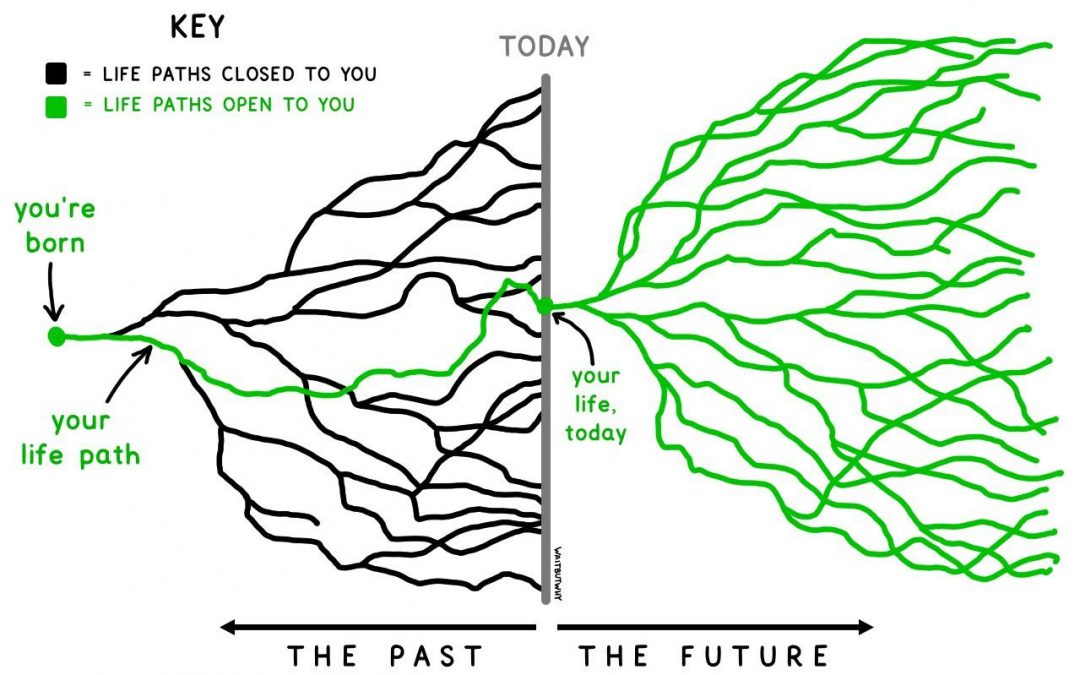| I came across this graphic on Linkedin the other day.
I think it nicely depicts how we can so often look back in our lives and think about how different it could have been if we’d made different decisions at key moments, when actually where we are right now at any moment in time does not necessarily dictate where we could go or what we could become if we want to. There is still a myriad of choices to make, paths to embark upon, and destinations to reach. I shared this image with my three kids. They’re 20, 18, and 15 and all – to some degree – wrapped up in their present, thinking that options are closed off to them, opportunities gone. If you’re a parent, you’ll no doubt have experienced this, especially during the last two years of the pandemic. I get it, and I was likely quite similar in my mindset three decades ago. I do my best, like any other parent, to show them that they have a wealth of opportunities ahead of them. The difference is, I don’t much mind if they end up rich and ‘successful’ (whatever that means) or not, so long as they are happy and keep looking forward, not back. How does this relate to fiction writing? Have you ever watched a TV program or movie and reflected afterward that, the acting, CGI, cinematography, and action scenes were good but there was no real drama, that it was just a sequence of ‘stuff happening’? That it was, as a result, boring? The reality, if you think about it, is that any story is ‘just a sequence of stuff happening’. If we’re talking about a piece of written, filmed, or televised drama, it is pre-ordained. It’s not going to change (only computer games can change and even then in the vast majority of cases, the scope of interaction is carefully kept within a certain set of variables.) That’s what a story is, but a good story has conflict, tension, and drama and obfuscates that pre-scripted, planned sequence from you, the reader, so you can’t see it, to keep you guessing. To keep you engaged. As a writer, we’re (usually) creating a linear storyline where we know from the outset (assuming we plan our books to some degree) what the characters’ starting point, the direction of travel, their decisions, and their ultimate destination will be. The trick is to convince you, our readers, that at any point our characters might quite potentially veer off from this planned journey. Otherwise, it would be totally unpredictable, and very boring. |

